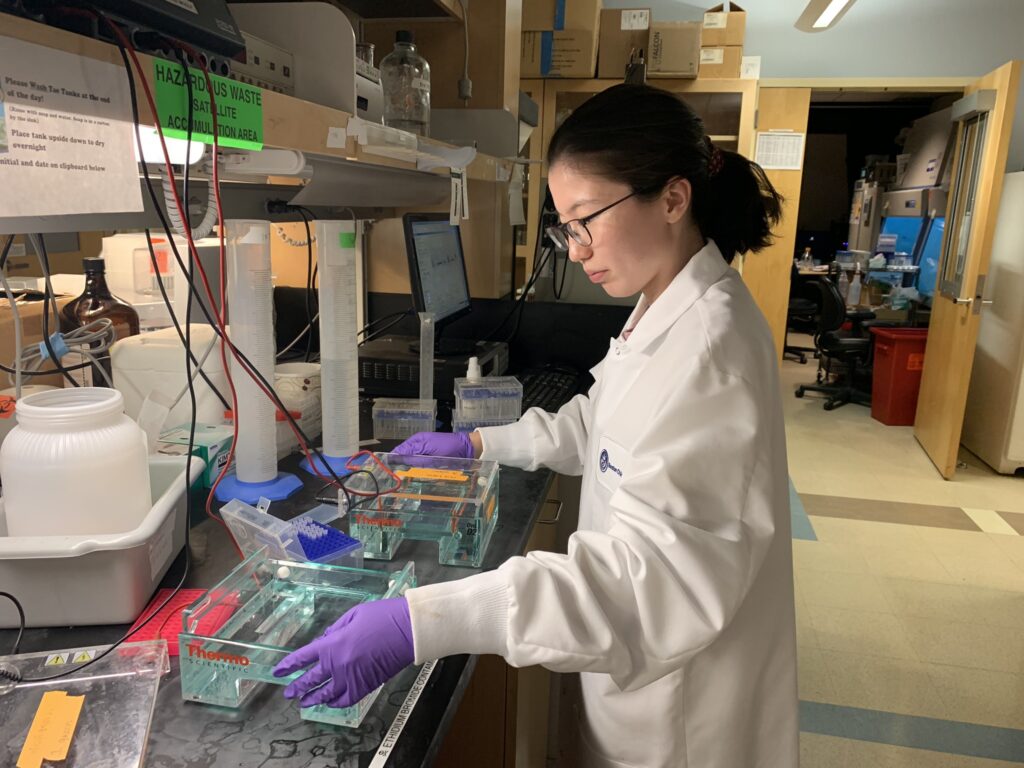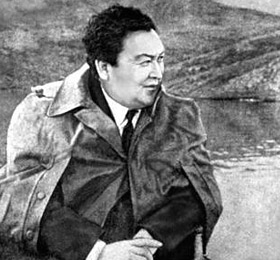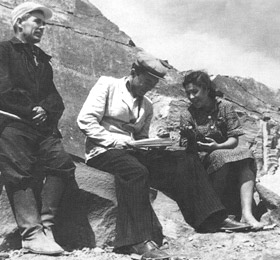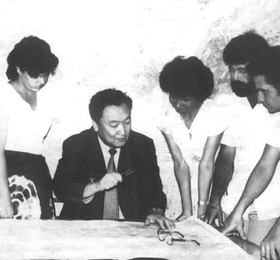Adina Yerzhan
Specialty: Medicine. Internship: Harvard School of Medicine, USA.
 She never tires of being surprised by everything she meets on her way. Adina is most interested in science, mountains and people in her life. A graduate student at the NU School of Medicine, Adina never dreamed of becoming a doctor while growing up. Her life and her great teachers and mentors, as she calls them, inspired her to take up this profession. She has managed to add an undergraduate degree in biology, the Shakhmardan Yessenov Foundation’s grant and an internship at the Harvard School of Medicine Children’s Hospital to her list of achievements. What else can we expect from the hyper-active Almaty-born prodigy?
She never tires of being surprised by everything she meets on her way. Adina is most interested in science, mountains and people in her life. A graduate student at the NU School of Medicine, Adina never dreamed of becoming a doctor while growing up. Her life and her great teachers and mentors, as she calls them, inspired her to take up this profession. She has managed to add an undergraduate degree in biology, the Shakhmardan Yessenov Foundation’s grant and an internship at the Harvard School of Medicine Children’s Hospital to her list of achievements. What else can we expect from the hyper-active Almaty-born prodigy?
Adina spent many years watching professionals treat her family members when they were ill. “Plus, I’ve always been fascinated by the human anatomy and physiology. I loved science, and often participated in math olympiads at high school. I ended up at the Zhautykov Math and Physics school,” the young woman explains. But when I got there, I immediately took an interest in biology and chemistry. She also became the republic’s champion of chemistry olympiads.
How do you like to relax?
Hiking in the mountains and nature. Even back in junior school, my grandfather would send us, his grandchildren, on summer holidays every year to the Altai Mountains, where he had grown up. After that, I visited the mountains of China and Mongolia. At first, I didn’t consider it a holiday, but more of an exile type of thing. I couldn’t get used to living in nature, far from civilization. It took me a few years to begin to really appreciate it. Such trips not only open up new horizons and allow you to see nature in a new light, but also relieve stress and, of course, teach you endurance. As they say, you have to learn to push your body and mind to the limits, and start demanding more from yourself.
You said you like talking to people? Would you care to shed some light on that?
You can enjoy chatting with new people from different countries. I am always interested in learning about their way of life, their different countries, stories, traditions, and, of course, the mountains. My grandfather taught us not only to receive energy, but also be able and ready to give it out in return. And I was already such a nomadic but happy tutor in those years: I taught children math, English and other languages; I’m studying five foreign languages.
What was the Shakhmardan Yessenov Foundation grant competition like for you?
I had known about the competition from the 2nd year of undergraduate studies. But maybe I felt insecure, or was not that knowledgeable, but this kept me from applying. The winners of the program whom I knew seemed super smart. But during my graduate studies, I decided to go for it. The most difficult stage of the competition was the second one – the group interview. It’s quite hard to have to answer non-standard questions directly without showing that you are anxious, nervous, or shy. But I got over that, as well as my fear of public speaking. I came out of the interview feeling quite happy and proud that I had finally given it a try after all. In the end, these frank group conversations were instructive and motivating to achieve.
How was your internship?
My lab was at the Boston Children’s Hospital. I worked under Professor Clifford Woolf, who studies neurobiological processes. My immediate supervisor was Dr. Simmie Foster. We studied how temperature and immunity interact at the molecular level to eventually apply the results, for example, to treat inflammatory diseases and even depression. I visited the clinic and watched the American doctors work. I made friends with many guys from different laboratories, whom I still communicate with regularly. I also linked up with Kazakhstani students studying in Boston. They made me feel at home while away from home, and showed me the city: its most interesting and beautiful places, and also gave me a bunch of useful tips.
What were your main achievements during the internship?
I carried out multiple experiments based upon which a scientific publication is currently being prepared. The publication will include the results of my work and those of our entire team. After completing the internship, where I studied how the immune system influences pain, I took an interest in full-time research in this particular area. While writing my undergraduate thesis, I had started working on a project about the immune response to gene therapy in patients with haemophilia, but only now did I realize that you can’t wait for a miracle and have to do it yourself!
Almost a year has passed since the internship. What interesting things have happened during this time?
I am continuing with my studies at the medical school at the same time that I am also studying new areas of clinical research and working with patients. Combining my theory with practice will help me gain research experience. Medical professionals usually treat patients based on ready-made protocols, while scientists try to understand the causes of diseases by studying the main mechanisms of the disease. I am learning to effectively combine scientific discovery with medical intervention at the same time I am engaged in research activities.
15.06.20, Stories
Seen by: 856






